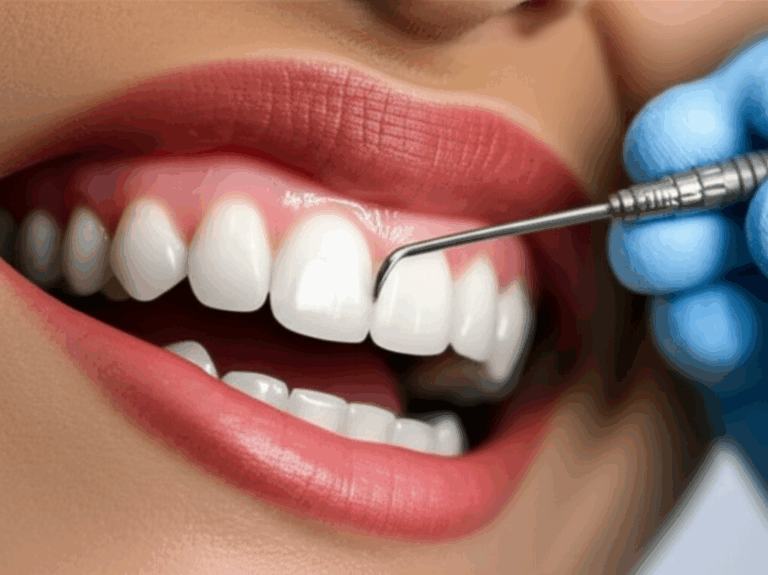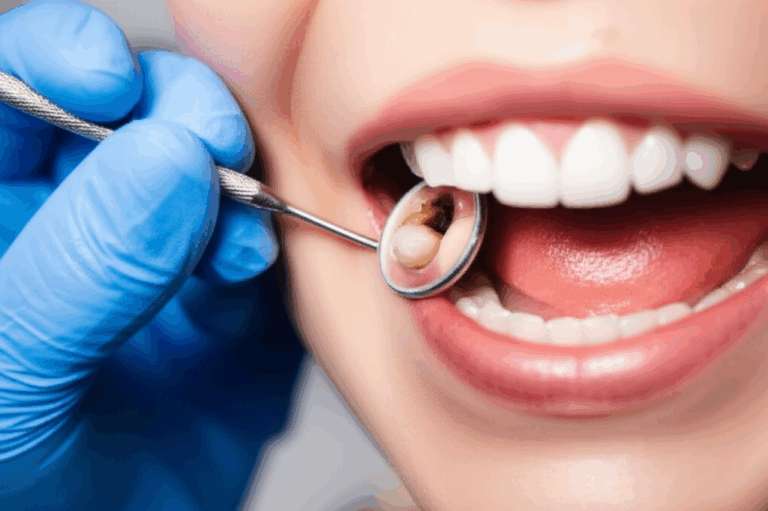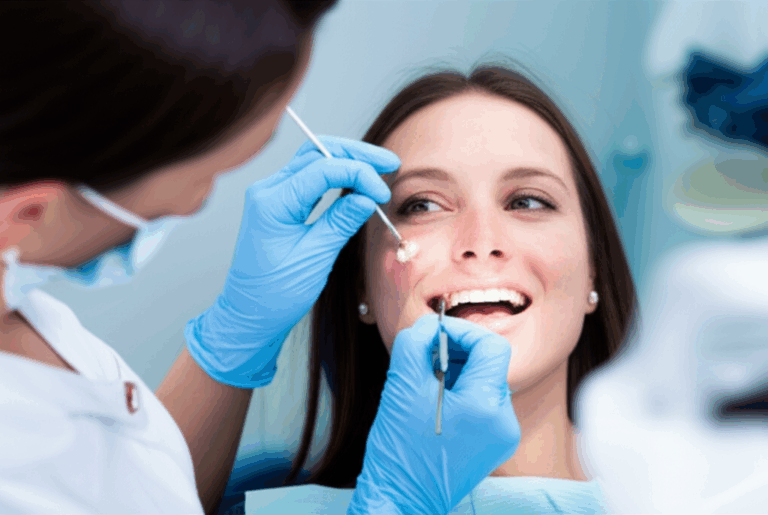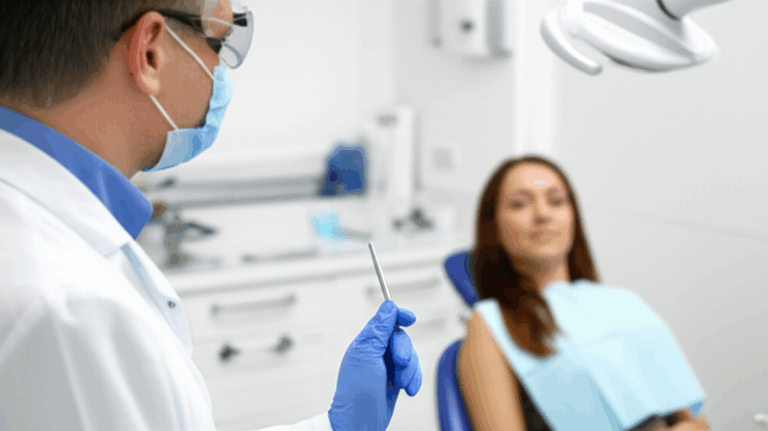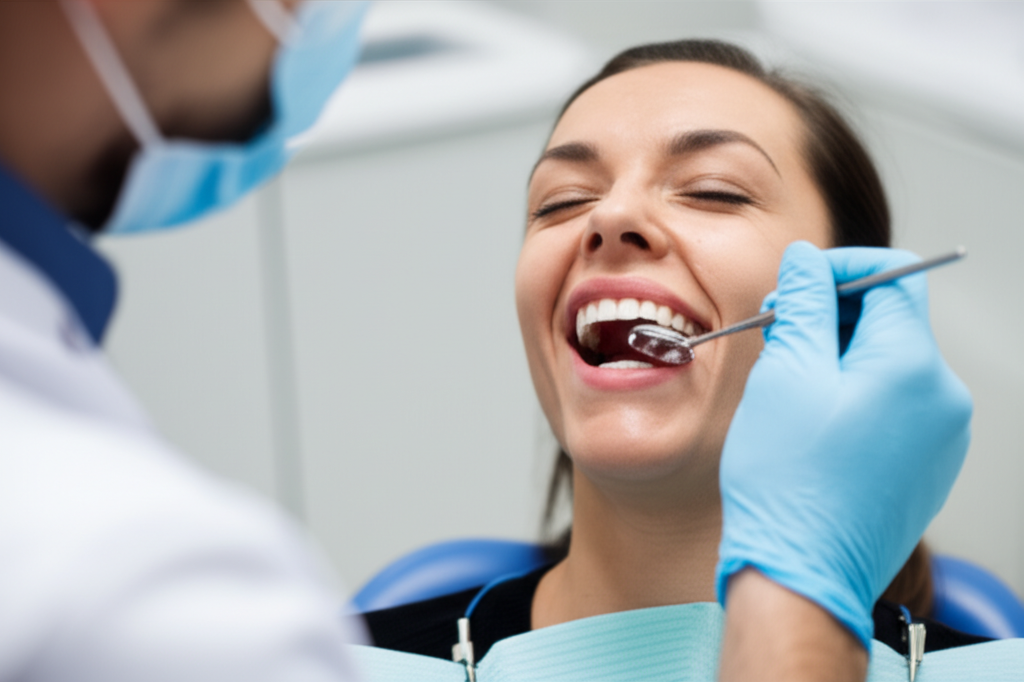
Can Your Dentist Provide Invisalign Treatment? My Real-World Insights on Dentists vs Orthodontists for Clear Aligners
Table of Contents
Introduction: How I Found Out Who Can Really Offer Invisalign
Here’s what happened to me: I wanted straighter teeth but didn’t know who to trust. Could my usual dentist do it, or should I find an orthodontist? I remember sitting in my dentist’s chair, nervously holding the paper that said “Ask us about Invisalign.”
Like a lot of people, I thought only orthodontists were experts in this. But is that really true? What I found out—after lots of research and plenty of questions—really surprised me. I’m here to share the real facts about who can give you Invisalign, what training is needed, and how to pick the best person for your case.
Let’s get started.
The Quick Answer—Yes, Your Dentist Might Offer Invisalign
First things first: Can a dentist give Invisalign? Yes! Many normal dentists are ready to fit you for Invisalign. It turns out this isn’t some special thing only orthodontists can do.
Both general dentists and orthodontists can get Invisalign training. If you walk into almost any dentist office, you’ll probably see posters or models showing clear aligners. In my city, at least half the dental offices I’ve been to now offer it.
But there’s one thing—you want someone who knows what they’re doing with your mouth. Not all Invisalign providers are the same.
Dentist vs Orthodontist: Getting to Know the Real Differences
This is where a lot of people get mixed up. So, what’s the real difference between a dentist and an orthodontist when it comes to Invisalign?
What a General Dentist Does
A general dentist is basically your main doctor—but for your teeth. They do checkups, fillings, cleanings, crowns, and that kind of stuff. Some do extra training to also do things like Invisalign and cosmetic work.
It’s kind of like learning to cook a new meal. With a good recipe and some extra practice, a good cook can make something new, even if they aren’t a fancy restaurant chef.
What Makes an Orthodontist Different
An orthodontist is a dental specialist. After dental school, they go back for a few more years just to learn about moving teeth and lining up jaws. You could say they’re the “builders” of the dental world—they know how to fix the hard stuff.
So, orthodontists take care of bigger problems. But for simple or not-too-bad cases? A dentist can help you, especially if they’ve done a lot of Invisalign cases before.
How Dentists Are Allowed to Do Invisalign (And What That Means for You)
Now, let’s talk about how a dentist can offer Invisalign. It’s not just about having a nice office and a warm smile!
Invisalign Training: More Than a Quick Class
Before I started my treatment, I wanted to know: How do dentists learn Invisalign? Here’s what I found after talking to my dentist:
- Initial Training: Dentists have to go through special training from Align Technology (the company that makes Invisalign). This isn’t a maybe—it’s a must.
- Keep Learning: Many dentists keep learning with more classes and workshops. Dentistry changes fast, so they need to keep up.
- Provider Levels: Invisalign gives dentists different titles, like Bronze to Diamond, based on how many Invisalign cases they’ve done. A “Diamond” or “Platinum” dentist has done a lot.
- Digital Tools: Many trained dentists now use cameras or scanners instead of old, gooey impressions. This can make the fit better and the visit nicer.
With so many dentists now buying good digital scanners and taking more classes, things are changing. You’ll often find regular dentist offices working with a digital dental lab to make sure your aligners and other cosmetic things are done right.
When a Dentist Makes Sense for Invisalign
So when should you pick your usual dentist for Invisalign? Here’s what I learned (and saw with friends):
Great Cases for Dentists
- Small or Medium Issues: If you just have a little crowding, some spacing, or a light overbite, many dentists can handle that.
- Teeth Moved Back After Braces: If you had braces before and your teeth moved a bit, a dentist is often the right choice.
- It’s Easy and You Know Them: If you already like your dentist, let them do your cleaning and straightening in one place.
- One Person for Everything: Your dentist knows your whole dental story, not just your teeth alignment.
I know friends who finished their Invisalign with their family dentist and loved the results. Most said they wished they’d started sooner.
When You Should See an Orthodontist
But sometimes your case is not simple. That’s when seeing a specialist is important.
Good Cases for Orthodontists
- Bigger Tooth Problems: If your teeth are really crowded or your bite is way off, an orthodontist has extra skills.
- Jaw and Bite Issues: Big overbites, underbites, crossbites, or open bites need a pro that’s trained to move teeth in harder ways.
- Lots Going On: If you’re doing other dental work or need more fixing, an orthodontist can handle it as part of a team.
- Kids and Teens: For growing kids, orthodontists have special know-how with changing jaws and teeth.
If your dentist says you need a referral—or your gut just says it’s not a simple job—listen. Getting a second opinion from an orthodontist can help a lot.
And if you need other treatments, like a dental implant or complicated work, teaming up with specialists or even a china dental lab can be a big help.
What to Ask: Picking the Right Invisalign Provider
After talking to a few offices, I realized not all Invisalign dentists or orthodontists have the same experience, even if they’re certified. Here’s my checklist (you should use it too):
If your dentist or orthodontist can answer these easily and show real results, you’re doing well.
Comparing My Own Experiences: Dentist or Orthodontist?
Here’s what happened to me: I visited both a general dentist and an orthodontist. Was there a big difference? It wasn’t about being friendly or about prices. It was about attention to detail.
- The dentist quickly told me I was a good candidate for normal Invisalign.
- The orthodontist took more time, mapping each tooth. They also spotted a slight jaw issue I hadn’t noticed.
I ended up going with my dentist because my case was easy. But I liked having both opinions, and I’d go back to the orthodontist if I had a harder problem.
Big Pros and Cons of Dentist-Led Invisalign
Here’s what I wish I’d known at the start:
Good Things
- Easy: You get all your dental stuff, from cleanings to aligners, in one place.
- Can Save Money: Sometimes dentists give better prices—always check.
- Knows Your Teeth: Your dentist already knows your gums, teeth, and story.
- Modern Tools: Dental offices are getting better scanners and gadgets now.
Watch Out
- Not for Hard Cases: Some big tooth or bite problems need an orthodontist.
- Experience Counts: A dentist with lots of Invisalign cases might do a better job than a new orthodontist.
- Referral is Key: Good dentists know when you need a specialist—but not all will say so. Ask early how they handle tricky cases.
Simple Tips for a Smooth Invisalign Experience
Here’s what worked for me (and what I’d tell anyone):
- Learn First: Check if your provider really knows Invisalign. Ask about their experience.
- Get a Second Opinion: Even if you’re sure, try another opinion. It helped me.
- Check Costs and Insurance: Ask about price and payment plans. Sometimes you save by doing everything in one office.
- Ask About Tech: Offices with good digital scanners can mean a better start.
- Be Ready for Changes: Even easy cases can hit snags. Make sure your dentist or orthodontist has a plan for that.
Deciding What’s Best for Your Smile
If you’re not sure if your dentist or an orthodontist should do your Invisalign, relax. Match your needs with what each one is best at.
- For small or medium fixes? Your dentist could be the right fit.
- For hard, big, or odd problems? Go to the orthodontist—they’re like the “problem solvers” for tough tooth cases.
Lots of dental offices also work with outside labs. If you need retainers at the end, ask if they use a special dental lab for retainers so you get the best fit and strength.
Final Thoughts: What I Learned the Hard Way
Looking back, I’m glad I took my time to pick. Here’s my last advice, straight from my own story:
- Their skills matter—but trust your gut, too. Go with a provider who listens and explains things.
- Everyone’s teeth are different. Make your choice based on your own needs—not just what’s easy.
- Don’t hurry. Read reviews and get recommendations if you can. When it comes to your smile, waiting for the right person is worth it.
Invisalign changed my life—my confidence soared after my teeth moved. It doesn’t matter if you choose a dentist or orthodontist. Just do your research, ask lots of questions, and listen to your own feelings.
I hope what I’ve learned helps you make the best choice for your own Invisalign adventure!

